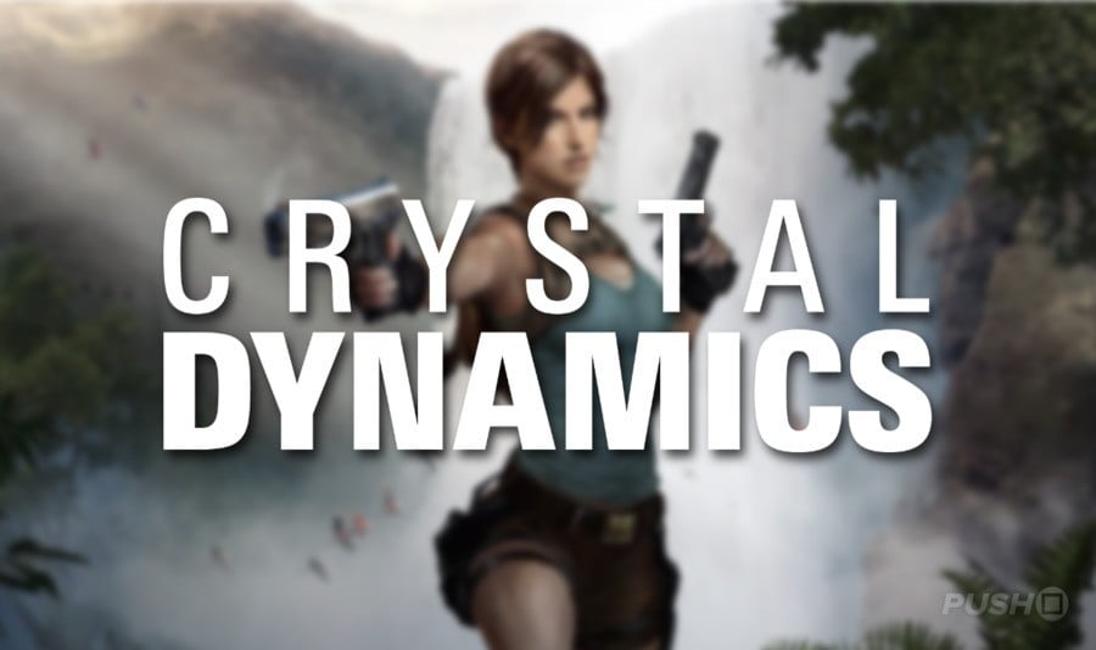Ugh, not again. It feels like we just reported on layoffs in the gaming industry, and now this: Crystal Dynamics, the studio behind the recent Tomb Raider reboot trilogy, is reportedly letting go of another 30 employees. Thirty! That's not just trimming the fat; that's a substantial chunk of the team. What's going on? And more importantly, what does this mean for the future of Lara Croft?
I initially thought it was just a blip, a course correction after some project didn't pan out. But after digging a bit deeper and reading reports from outlets like IGN, it seems there's a larger trend at play, a worrying one. Layoffs are becoming almost… routine? Like a quarterly budget meeting.
Why Tomb Raider Layoffs Matter
Here's the thing: Crystal Dynamics isn't some small, struggling indie studio. They've got a major IP, a dedicated fanbase, and a proven track record. The rebooted Tomb Raider games were fantastic (yes, even Shadow of the Tomb Raider, which I personally enjoyed more than most). They showed a real understanding of the character and a willingness to evolve the gameplay while staying true to the core of what makes Lara Croft so iconic. Think about it this way, we are losing potentially great minds behind some of our favorite games.
But—and this is a big but—the gaming industry is notoriously volatile. Development cycles are long, budgets are enormous, and the pressure to deliver a blockbuster hit is immense. One misstep, one project that underperforms, and suddenly, people are losing their jobs. It's brutal, and it highlights a fundamental problem with the way games are made today. I mean, is there a way to balance creative risk with financial stability?
Layoffs: A Symptom of a Larger Problem?
I've got to admit, this part fascinates me. The rise of big-budget, AAA game development has created this winner-take-all environment. Studios are constantly chasing the next mega-hit, the next Fortnite or Call of Duty. And when a game doesn't reach those astronomical heights, the consequences can be devastating. The industry needs an overhaul. We are seeing more and more talented developers move to indie development, but they should not feel forced to do so. Let's hope this can be prevented in the future.
Actually, that's not quite right. It's not just about chasing trends. It's about the unsustainable business models that prioritize short-term profits over long-term stability. It's about the crunch culture that burns out developers and leads to projects being rushed and unfinished. And it's about the lack of transparency and accountability that allows these kinds of layoffs to happen without any real explanation or recourse.
Speaking of crunch – [Internal Link: https://vginius.com/post/descent-of-lunaris-pc]– it's something that's been discussed for years, but it persists like a bad habit. And the impact goes beyond just missed deadlines; it affects people's lives. Stress, burnout, and a constant fear of losing your job take a toll, and it's no wonder so many talented people are leaving the industry altogether.
What Does This Mean for Tomb Raider?
You might be wondering, what does this all mean for the future of Tomb Raider? Well, that's the million-dollar question. Crystal Dynamics is still involved in the development of the next Tomb Raider game, which is being published by Amazon Games. But with a significant portion of the team gone, it's hard not to feel a little apprehensive. Will the new game live up to the standards set by the reboot trilogy? Will it capture the same spirit of adventure and discovery? Or will it be a watered-down, generic action game designed to appeal to the widest possible audience?
Only time will tell. But one thing is clear: the layoffs at Crystal Dynamics are a symptom of a larger problem within the gaming industry, a problem that needs to be addressed if we want to create a more sustainable and equitable future for developers and players alike. [Internal Link: https://vginius.com/post/minecraft-valheim-rpg-mashup] And now, for something a bit lighter, have you seen that new Valheim/Minecraft mashup?
FAQ: Understanding Layoffs and the Gaming Industry
Why are layoffs happening at Crystal Dynamics?
While the specific reasons for the layoffs haven't been explicitly stated, it's likely a combination of factors. Game development is an expensive and risky business, and studios often face pressure to meet financial targets. Restructuring, project cancellations, or a desire to streamline operations can all lead to layoffs. However, the lack of transparency from the company is concerning, leaving many to speculate on the true reasons behind the cuts.
How do layoffs affect game development?
Layoffs can have a significant impact on game development. Losing experienced team members can disrupt workflows, delay projects, and impact the quality of the final product. Morale can also suffer, as remaining employees may feel anxious about their own job security. In the worst-case scenario, layoffs can lead to the cancellation of entire projects.
What can be done to prevent layoffs in the gaming industry?
There's no easy answer to this question. But promoting sustainable business practices, fostering a culture of transparency and accountability, and supporting independent developers can all help to create a more stable and equitable industry. Diversifying revenue streams, such as through subscriptions or merchandise, can also reduce reliance on blockbuster hits. And perhaps most importantly, recognizing and valuing the contributions of individual developers can create a more loyal and engaged workforce.
How can I support developers affected by layoffs?
If you want to support developers affected by the recent layoffs, consider reaching out to them directly. Share their portfolios, recommend them for open positions, or simply offer words of encouragement. You can also support indie game developers by purchasing their games, leaving reviews, and spreading the word about their work. Ultimately, creating a more supportive community can help to mitigate the negative impacts of layoffs and ensure that talented developers continue to thrive.





















